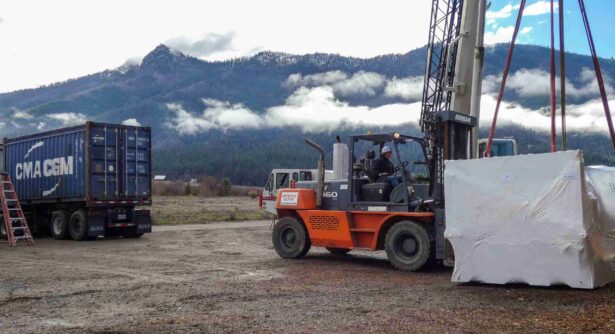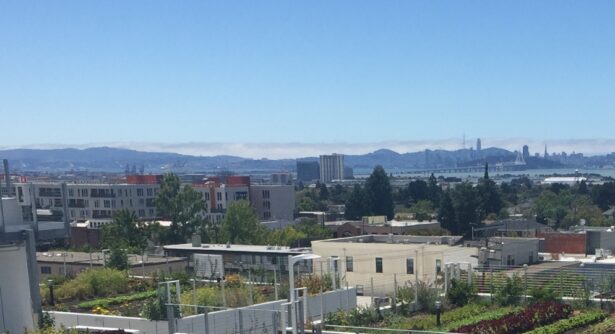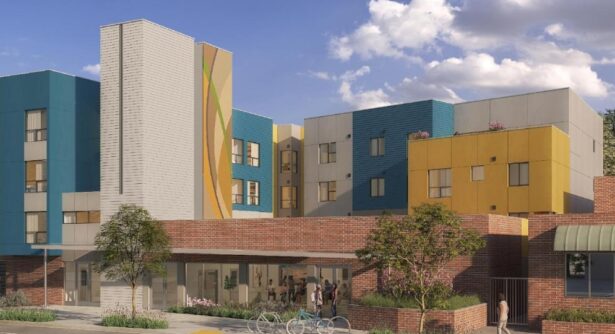
Nuclear Communities Technical Assistance Program Sunsets in 2023
As of August 2023, the United States had 93 commercial nuclear reactors operating at 54 nuclear power plants in 28 states, with the average age of these reactors being 42 years old. 22 reactors are in the process of decommissioning -The process of safely closing a nuclear power plant and retiring it from service after its useful life has ended. Communities home to a nuclear power plant often face economic and social challenges related to decommissioning and eventual closure. These might include loss of skilled jobs or “brain drain,” significant decrease in tax revenue, undevelopable plant sites, or impacts to housing, local schools and businesses.
From 2020 to 2023 CCLR partnered with Smart Growth America, the Nuclear Decommissioning Collaborative (NDC), and the National Association of Development Organizations (NADO) to support nuclear host communities in their journey toward a diverse, resilient and prosperous economic future under a grant from the U.S. Economic Development Administration’s Economic Adjustment Assistance program.
In December 2023, the Nuclear Communities Technical Assistance Program (NC TA) closed after three years of service. While the grant period is over, the work continues. Read more here about the work done under the grant, key takeaways and how to stay in touch with each of the organizations. In a recent statement, Smart Growth America called the NC TA “one of the most interactive, educational, and successful projects [they] have completed to date.”
The NC TA provided a variety of services and resources including, but not limited to:
- Support in understanding the decommissioning process and how it can be leveraged
- SWOT (strengths, weaknesses, opportunities and threats) Analysis
- Stakeholder engagement and communications
- Visioning strategies
- Land use, zoning and housing stock assessments
- Underutilized sites and brownfields assessments
- Economic Impact Analysis/Fiscal Hotspot Analysis
- Enhancing economic development strategies and diversification (local and regional)
Under the NC TA, the team and CCLR was able to provide no cost technical assistance to host communities across the nation anticipating or experiencing the impacts of a nuclear plant closure. It offered holistic assistance based on each community’s existing conditions, challenges, assets and goals for the future, and analyzed possible avenues for economic diversification – a critical element to future sustainability.
In March 2022, Jim Hamilton, Executive Director of NDC, Brett Schwartz, Executive Director of NADO Brett Schwartz, and Joelle Greenland, AICP, Senior Planning Consultant for CCLR, AICP, published “What is the ‘Second Act’ for Communities with Decommissioned Nuclear Plants?” in the Daily Yonder, a national new organization for rural communities. They dissected and dove into a multitude of socioeconomic impacts of nuclear power plants and how they serve as major economic drivers in rural communities and regions sustaining school and municipal budgets. Additionally, they affirmed how nuclear power plants and its employees made huge impacts on communities, influencing not only a community’s identity, but also establishing a unique sense of place.
In a 2019 blog post for CCLR, Hamilton also wrote that an operating nuclear power plant can account for upwards of 50% of local tax revenues. He also stated that the stigma associated with nuclear power creates a general unwillingness to invest in redevelopment.
For those planning reuse, spent nuclear fuel remaining at nuclear sites is another cause for trepidation. Currently, spent fuel remains at 70 sites in 35 states “until a permanent disposal solution is determined by the federal government”. Initially, Yucca Mountain in Nevada was proposed; however, this was abandoned after it was determined that it was not feasible due to a number of factors.
To help address this and other issues and concerns, CCLR helped to create and facilitate the first nuclear-focused community of practice, for those wanting to share knowledge, concerns, and solutions with others in similar circumstances. The events were specifically designed to provide a safe space for nuclear host community leaders, planners, and stakeholders to build relationships, “cross-pollinate” knowledge and collaborate on long-term planning approaches for their communities.
CCLR also helped to develop and facilitate the first national nuclear forum, Nuclear Communities Forum 2022,in April of 2022. Dozens of speakers, experts and community leaders came together virtually to share insights from the field on a wide range of topics including: impacts of nuclear closure, decommissioning, meaningful community engagement, and the importance of early planning for a successful transition.
Prior to wrapping up the TA program this past December, the team held its second national forum in late September. Using the experiences and insights gained from the technical assistance and community of practice, the team convened nuclear host communities once again to continue the conversation on a multitude of topics including: lessons learned and best practices in planning, leveraging the nuclear workforce, future of nuclear in an evolving energy market, latest advancements with nuclear Small Modular Reactors, community development, energy site reuse: brownfields to brightfields, and the possibilities of solar on closed nuclear plant sites.
CCLR is proud to have contributed to this impactful program and continues to assist communities across the nation with energy and land use transitions. Looking to the future, it will continue to support communities in their efforts to create sustainable, diverse economies while also being resilient and cognizant of the socioeconomic impacts that often come with change.
Updated Jan. 12, 2024




